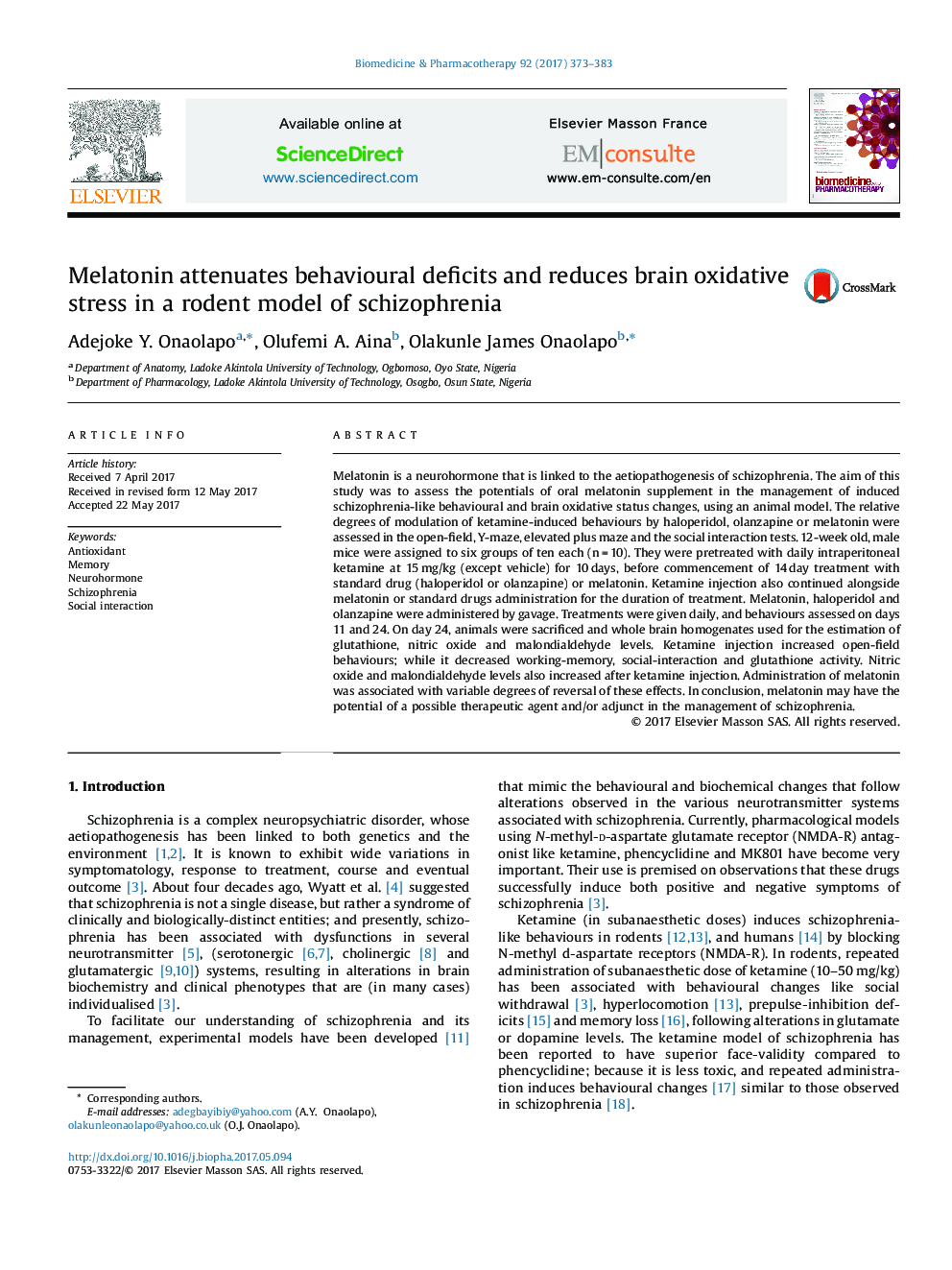| Article ID | Journal | Published Year | Pages | File Type |
|---|---|---|---|---|
| 5552750 | Biomedicine & Pharmacotherapy | 2017 | 11 Pages |
Melatonin is a neurohormone that is linked to the aetiopathogenesis of schizophrenia. The aim of this study was to assess the potentials of oral melatonin supplement in the management of induced schizophrenia-like behavioural and brain oxidative status changes, using an animal model. The relative degrees of modulation of ketamine-induced behaviours by haloperidol, olanzapine or melatonin were assessed in the open-field, Y-maze, elevated plus maze and the social interaction tests. 12-week old, male mice were assigned to six groups of ten each (n = 10). They were pretreated with daily intraperitoneal ketamine at 15 mg/kg (except vehicle) for 10 days, before commencement of 14 day treatment with standard drug (haloperidol or olanzapine) or melatonin. Ketamine injection also continued alongside melatonin or standard drugs administration for the duration of treatment. Melatonin, haloperidol and olanzapine were administered by gavage. Treatments were given daily, and behaviours assessed on days 11 and 24. On day 24, animals were sacrificed and whole brain homogenates used for the estimation of glutathione, nitric oxide and malondialdehyde levels. Ketamine injection increased open-field behaviours; while it decreased working-memory, social-interaction and glutathione activity. Nitric oxide and malondialdehyde levels also increased after ketamine injection. Administration of melatonin was associated with variable degrees of reversal of these effects. In conclusion, melatonin may have the potential of a possible therapeutic agent and/or adjunct in the management of schizophrenia.
